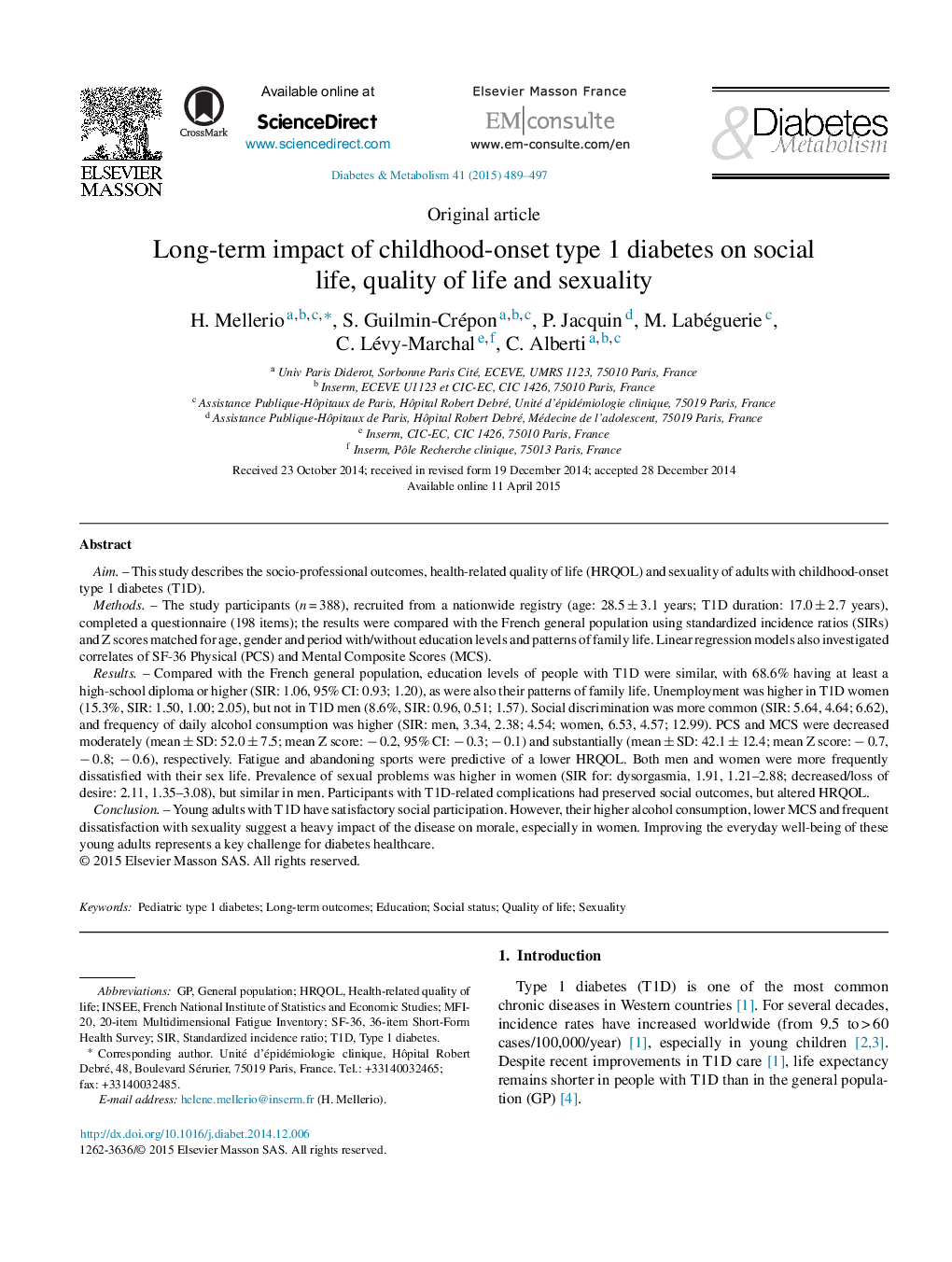| کد مقاله | کد نشریه | سال انتشار | مقاله انگلیسی | نسخه تمام متن |
|---|---|---|---|---|
| 3258999 | 1207561 | 2015 | 9 صفحه PDF | دانلود رایگان |
AimThis study describes the socio-professional outcomes, health-related quality of life (HRQOL) and sexuality of adults with childhood-onset type 1 diabetes (T1D).MethodsThe study participants (n = 388), recruited from a nationwide registry (age: 28.5 ± 3.1 years; T1D duration: 17.0 ± 2.7 years), completed a questionnaire (198 items); the results were compared with the French general population using standardized incidence ratios (SIRs) and Z scores matched for age, gender and period with/without education levels and patterns of family life. Linear regression models also investigated correlates of SF-36 Physical (PCS) and Mental Composite Scores (MCS).ResultsCompared with the French general population, education levels of people with T1D were similar, with 68.6% having at least a high-school diploma or higher (SIR: 1.06, 95% CI: 0.93; 1.20), as were also their patterns of family life. Unemployment was higher in T1D women (15.3%, SIR: 1.50, 1.00; 2.05), but not in T1D men (8.6%, SIR: 0.96, 0.51; 1.57). Social discrimination was more common (SIR: 5.64, 4.64; 6.62), and frequency of daily alcohol consumption was higher (SIR: men, 3.34, 2.38; 4.54; women, 6.53, 4.57; 12.99). PCS and MCS were decreased moderately (mean ± SD: 52.0 ± 7.5; mean Z score: − 0.2, 95% CI: − 0.3; − 0.1) and substantially (mean ± SD: 42.1 ± 12.4; mean Z score: − 0.7, − 0.8; − 0.6), respectively. Fatigue and abandoning sports were predictive of a lower HRQOL. Both men and women were more frequently dissatisfied with their sex life. Prevalence of sexual problems was higher in women (SIR for: dysorgasmia, 1.91, 1.21–2.88; decreased/loss of desire: 2.11, 1.35–3.08), but similar in men. Participants with T1D-related complications had preserved social outcomes, but altered HRQOL.ConclusionYoung adults with T1D have satisfactory social participation. However, their higher alcohol consumption, lower MCS and frequent dissatisfaction with sexuality suggest a heavy impact of the disease on morale, especially in women. Improving the everyday well-being of these young adults represents a key challenge for diabetes healthcare.
Journal: Diabetes & Metabolism - Volume 41, Issue 6, December 2015, Pages 489–497
